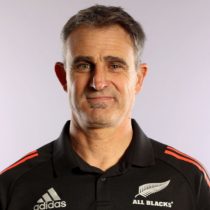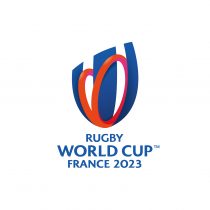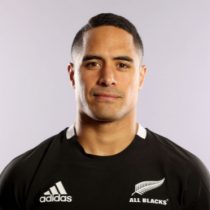ITALY, RICCIONI: “WITH THE ALL BLACKS WE DON'T GO ON THE FIELD TO LIMIT THE DAMAGE.
- 1901

Ready for the impossible, which - perhaps - isn't so impossible, because Italy intends to take to the field with the desire to play for real, without awe and with the knowledge that the pressure will be entirely on the All Blacks, in a match that is already worth qualifying for the quarter-finals of the Rugby World Cup 2023. The Azzurri have two "match points", on 29 September against Foster's team and on 6 October against France, while New Zealand absolutely must win, otherwise it will be mathematically eliminated. According to Marco Riccioni, right prop of the Italian national team, the match against Uruguay further demonstrated how much this Italy has grown. Now we have to try the feat.
Marco, how are you physically?
"Very good. I have fully recovered from the injury and the two matches against Namibia and Uruguay served a lot to find the right condition. The biggest obstacle was the match against Namibia, because I had to find my feet again at international level, but then everything went well."
Italy is looking for the feat against the All Blacks. How do you prepare for a match like this?
“We are at a World Cup, there are many things at stake. We are both fighting for qualification, but they have the pressure of having to win at all costs to avoid being eliminated. They will be under more pressure, but we will have to give it our all: we must be attentive, fired up and ready for a great physical battle."
Will De Groot's absence from the fray change anything?
“The preparation doesn't change much. You definitely approach the game differently because maybe a De Groot works differently in melee compared to a Tu'ungafasi. In the end we don't actually know who will play, we can imagine and prepare for that, but we certainly can't know their choices in advance. For this reason, the main objective must always remain on ourselves, focusing on our work, on how much we have grown in these last matches and taking it forward."
How much do you feel improved after this year in England?
“Playing at that level helped me a lot, also in terms of mentality: you learn to win and know how to win, to control moments of difficulty. Then, however, I play with guys who come from all the strongest national teams, from the Welshman Tompkins to all those from England like Farrell. We then try to carry all this baggage when he goes to the national team. But it's not just me, I think the whole team has improved in this aspect. At half-time against Uruguay I was calm. I knew we had more and we had to get it out. We said to ourselves 'now let's go out and win the game', and we did."
Before, Italy suffered more from certain types of situations, was it an important change?
"Surely. You have to have the strength to believe that matches don't end in the first half: we went down 17-7, after a difficult first half, and it wasn't easy to recover. We played 10 minutes with 13 men, conceding only 7 points, and I think that was the decisive factor. Talking about it with Seb Negri, he told me: 'We won this match by defending in that furious way in those 10 minutes, conceding only one try'. Those are the things that give you energy and confidence, and this match showed how much this group has grown."
From Aaron Smith and Scott McLeod, many even in the New Zealand environment have said important words for this Italy, and in general even abroad a different vision of this team has been created. Do you feel greater confidence?
“I would say finally (laughs, ed.). Even when we beat great teams, like Australia last year or South Africa in 2016, there was always the idea that the others weren't at their best while we were at our best. It's nice to have recognition. Then for the All Blacks it is a very important match because if they lose they will be eliminated, so they will have a greater responsibility. However, we don't go onto the pitch to contain them and limit the damage, but to face them head on and play it out."
However, will it be important to resolve some problems that have been seen recently, such as the meeting point and the approaches in the first half?
“Surely everyone makes mistakes. It's impossible to play the perfect match. We saw what the problems were in the meeting point and obviously we worked to resolve them, but I think that focusing too much on what went wrong in the last matches is not the right thing to do: we are clearly working on it, as well as all the others teams, but we need to focus on what we have done well and know how to do well. It's a way to become even more familiar with our game, without beating ourselves up about what didn't work."



















